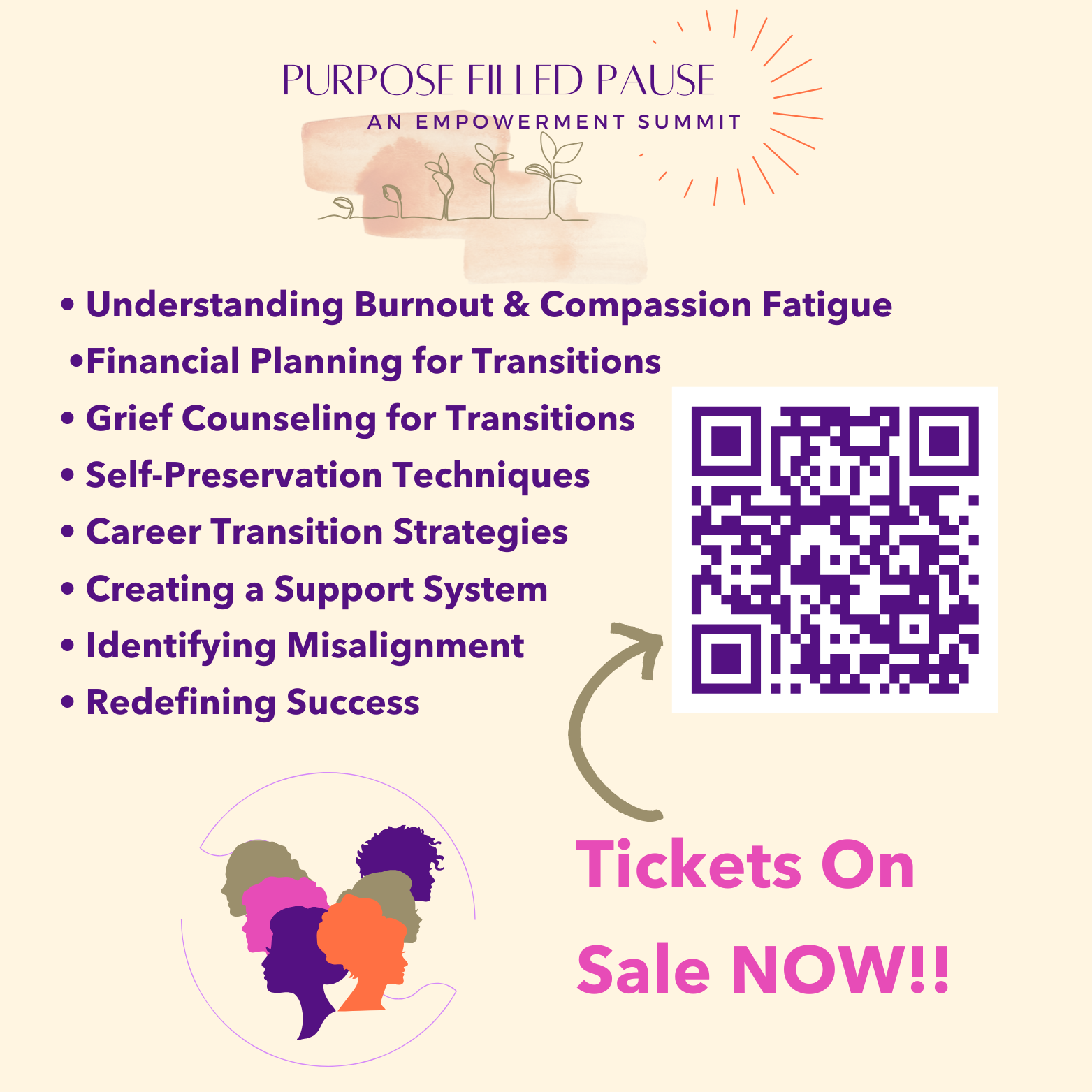
“Bringing the gifts that my ancestors gave, I am the dream and the hope of the slave.
I rise. I rise. I rise.”
— Maya Angelou, Still I Rise
I am unapologetically BLACK. If that triggers you, go take a look in the mirror. Ask yourself why, then ask yourself why again. Keep asking until you reach the root issue, then deal accordingly. No matter what you do, don’t get disrespectful.This started with me centering articles focused on equity and equality, reproductive justice, abolition, restorative justice, and more. I have evolved to sharing my own prose writings as well as some articles shared in my newsletter. I hope to start/carry on the important conversations. How to Recognize Burnout
Burnout is a significant issue, especially for Black women who often face unique stressors and expectations in both personal and professional life.
Below we will address how to recognize early signs of burnout, acknowledging that burnout looks different for Black women than it does for others, what to do if you realize you are burnt out, and ways to avoid it in the first place.
Early Signs of Burnout:
Emotional Exhaustion: Feeling emotionally drained and overwhelmed, even after resting. You might dread going to work or engaging in activities you once enjoyed.
Physical Symptoms: Persistent fatigue, headaches, gastrointestinal issues, or frequent illnesses due to a weakened immune system.
Cognitive Impairment: Difficulty concentrating, forgetfulness, and a decline in productivity.
Sleep Disturbances: Insomnia or restless sleep, waking up still feeling tired.
Increased Irritability: Becoming easily frustrated, snapping at loved ones, or feeling overly sensitive to criticism.
Detachment: Feeling disconnected from your job, colleagues, or even personal relationships. This can manifest as a sense of numbness or apathy.
Self-Doubt: Questioning your abilities and feeling like you’re not doing enough, despite overwhelming evidence to the contrary.
Cynicism: Developing a negative, critical, or indifferent attitude towards your work and colleagues.
What Burnout Looks Like in Women, Specifically Black Women:
〰️
What Burnout Looks Like in Women, Specifically Black Women: 〰️
Internalized Pressure: Black women often face the “strong Black woman” stereotype, which can lead to internalized pressure to be resilient and handle everything without showing vulnerability. This can mask the early signs of burnout.
Overcommitment: The need to excel in multiple roles—career, family, community—can lead to chronic overcommitment, contributing to burnout.
Microaggressions and Racism: The daily stress of dealing with microaggressions, discrimination, and systemic racism can exacerbate burnout. The cumulative effect of these stressors can be profound and often goes unrecognized.
Isolation: Feeling isolated in predominantly white workplaces or industries, or in roles where there are few other Black women, can heighten stress and contribute to burnout.
Role Strain: Balancing multiple roles and expectations—career professional, caregiver, community leader—can create role strain, leading to burnout.
Emotional Labor: The expectation to maintain a pleasant demeanor, manage others’ emotions, and navigate racial dynamics in the workplace adds to the emotional burden.
How to Avoid Burnout:
Set Boundaries: Learn to say no when necessary and set clear boundaries between work and personal life. This includes limiting after-hours work and ensuring you have time for self-care.
Delegate: Whether at work or at home, don’t hesitate to delegate tasks. You don’t have to do everything yourself.
Practice Self-Care: Regularly engage in activities that rejuvenate you, such as exercise, hobbies, or spending time with loved ones. Self-care isn’t a luxury; it’s a necessity.
Mindfulness and Meditation: Incorporate mindfulness practices or meditation into your daily routine to manage stress and stay grounded.
Connect with a Support Network: Maintain strong relationships with friends, family, and mentors who can provide emotional support and perspective.
Therapy: Regular therapy sessions, even when you’re not in crisis, can be a preventive measure. A therapist can help you develop coping strategies and recognize early signs of burnout.
Advocate for Yourself: In the workplace, advocate for fair treatment, reasonable workloads, and access to resources that can prevent burnout. This might include flexible work arrangements or access to mental health resources.
Preventative Measures:
Work-Life Integration: Focus on integrating work and life in a way that aligns with your values and needs, rather than striving for a perfect balance that can be unrealistic.
Prioritize Sleep: Quality sleep is foundational to preventing burnout. Establish a consistent sleep routine and create a restful sleep environment.
Regular Breaks: Take regular breaks throughout the day to step away from work, even if just for a few minutes. This helps maintain mental clarity and reduces stress.
Limit Exposure to Stressors: Identify chronic stressors in your life and find ways to minimize or eliminate them. This might involve difficult decisions, like changing jobs or cutting ties with toxic relationships.
Continued Learning: Stay engaged and motivated by pursuing ongoing learning or professional development that aligns with your passions, rather than just career advancement.
What to Do Once You Realize You Are Burnt Out:
〰️
What to Do Once You Realize You Are Burnt Out: 〰️
Acknowledge It: The first step is recognizing and accepting that you’re burnt out. This isn’t a sign of weakness; it’s a call for change.
Seek Support: Reach out to a therapist, coach, or trusted confidant to discuss your feelings and explore your options.
Take a Break: If possible, take a leave of absence or extended break from work to rest and recharge. Even a short vacation can provide relief.
Reevaluate Priorities: Reflect on what truly matters to you. Are you living in alignment with your values, or are you prioritizing others’ expectations?
Simplify Your Life: Remove unnecessary obligations or activities from your schedule. Focus on what truly nourishes you.
Develop a Recovery Plan: Work with a therapist or coach to create a structured plan for recovery, which might include changes in your work environment, lifestyle, or personal habits.
Other Key Considerations:
Intersectionality: Understand that burnout in Black women is often compounded by the intersection of race, gender, and other identities. This means addressing systemic issues and advocating for change in the environments that contribute to burnout.
Compassion Fatigue: If your role involves caregiving or emotional labor, be aware of compassion fatigue—a state of physical and emotional exhaustion caused by caring for others. It’s essential to set boundaries and seek support to prevent this.
Cultural and Historical Factors: The legacy of resilience and the burden of expectation placed on Black women due to historical and cultural factors can influence how burnout manifests and is experienced. It's important to acknowledge and address these in the context of recovery and prevention.



